
The_King
-
Posts
35762 -
Joined
-
Last visited
-
Days Won
552
Content Type
Profiles
Forums
Events
News & Reviews
Posts posted by The_King
-
-
A crocodile was spotted at Lower Seletar Reservoir on Thursday (14 February) morning, said national water agency PUB in a Facebook post.
The animal was spotted by a PUB contractor, said the agency, which added that it will be working with the National Parks Board (NParks) to capture it.
“For public safety, all water activities and fishing activities at Lower Seletar Reservoir have been suspended until further notice,” said the agency.
“The public is advised to be alert and avoid going near the reservoir water edge.”
Stay calm, back away slowly
Park visitors who encounter a crocodile have are advised to stay calm and back away slowly.
“They should not approach, provoke, or feed the animal. Please call PUB at 9632 3261,” the agency added.
-












A lecturer has been dubbed 'Taiwan's hottest teacher' after photos taken of her during her classes went viral.
Cheng Jhia-wen became an internet celebrity after pictures of her teaching a class at the Chien Hsin University of Science and Technology in Taoyuan city were shared online.
The photos, taken by her students, show the lecturer in a black mini-dress, teaching a course on intellectual property rights.
She has since drawn more than 91,000 followers on her Instagram account.
Cheng is studying law at the Chinese Culture University and teaches an elective called knowledge-based economy and intellectual property, according to Apple Daily Taiwan.
In her Instagram posts, Cheng also showed off her musical talents by playing the piano and the flute.
Social media users admitted that they would go back to school just to have an opportunity to be her student.
'Can I redo my university degree?' one user asked on Facebook.
'How are the students able to focus in class?' another asked.
'When and where do I enroll?' another user asked.
'I'm sure no one would be skipping her class!' one user added.
https://www.dailymail.co.uk/news/article-6699963/Lecturer-dubbed-Taiwan-hottest-teacher.html
-
A single-storey detached food factory at 2 Enterprise Road is up for sale at $18 million.
The property is within the JTC “Chin Bee” Food Zone, and surrounded by food suppliers and manufacturers such as Neo Garden, Khong Guan, GSK, Unilever, Olam and Meiji.
Located at the corner of Jalan Boon Lay and Enterprise Road, the factory occupies a land of 174,743 sq ft and a gross floor area (GFA) of 151,606 sq ft. Under URA’s Master Plan 2014, it is zoned as “Business 2” with a plot ratio of 2.5. It has a leasehold tenure of 60 years from JTC, with about 14 years left.
Currently, the property is approved for warehousing and distribution of food and related products as well as meat processing. Facilities include a warehouse, production area, chiller and freezer rooms as well as loading bays.
“The future Enterprise MRT Station at the doorstep of the property will make it even more appealing. We envisage that this sale opportunity is likely to attract strong interest from a diverse mix of users from the food and beverage industry,” says Shaun Poh, executive director of capital markets at Cushman & Wakefield.
https://sg.finance.yahoo.com/news/food-factory-sale-boon-lay-090050464.html
-
Oh, you actually clicked on this article. Happy Humpday! Get out of that midweek slump with an odd clip depicting a man proudly showing off his prowess in scarfing down junk food. Not exactly a skill you’d want to add to your resumé though.
Having pride in looking gluttonous may be questionable (you do you, man), but at least it makes for an entertaining watch. With the source of the clip not divulged by the SINK – Singapore Ink Facebook page, the exact date, time and place of the clip remains unknown. Nonetheless, watch as the man attempt to eat the whole burger in one bite.
It’s impossible, of course, but he does succeed in shoving the entire McChicken into his mouth — dignity be damned.
https://www.facebook.com/SinkSpore/videos/395551051254577/
https://coconuts.co/singapore/news/witness-man-fit-whole-mcchicken-burger-mouth/
-
Cheesy Chicken with veggi





-
 2
2
-
-
Your idea of a holiday could be a flight or bus ride to Singapore or Bangkok, but what if it could be a scenic train ride instead?
This vintage-looking train is the Eastern & Oriental Express:
Eastern & Oriental Express (E&O) is operated by Belmond Ltd; the same company that operates the prestigious Venice Simplon-Orient-Express which travels through Europe.
Unlike its European counterpart though, E&O takes passengers on a soothing ride through Southeast Asia instead.Within its deep green-and-gold carriages, the E&O has all the facilities that turn it into a travelling luxury hotel
The open-air observation deck, in particular, seems to be the most popular place to be Instagrammed in
Passengers can choose to lay their head down each night in one of three cabin options
The three options are:
- the more affordable Pullman Cabin (available for solo travellers as well),
- the light and airy State Cabin, or
- splurge on a Presidential Cabin that comes with WiFi connection and a minibar.
All cabins are complete with en suite bathrooms and are fully air-conditioned.Unlike usual trains, the E&O offers a 'journey' rather than simple ol' train tickets
Each package includes accommodation, dedicated 24-hour steward service, and guided cruises or excursions at various stops along the way.
Oh, and daily three- or four-course meals as well, including a continental breakfast served to you in your own cabin.There are four journeys on the E&O to choose from:
- Kuala Lumpur to Bangkok (2D1N),
- Bangkok to Kuala Lumpur (3D2N),
- Bangkok to Singapore (4D3N), and
- Singapore to Bangkok (3D2N).
If you're looking to splurge a little more, then there's the Fables of Peninsula package. The 7D6N journey will take you on a languid, dreamy ride from Singapore all the way to Bangkok, Thailand.
In addition to all the other perks, this package includes extra excursions and overnight stays at hotels in Cameron Highlands and Singapore.So, if you'd like to splurge on yourself or someone special, you can book your getaway over here
Packages prices start from USD2,700 (RM11,000) per passenger and are limited to a small number of passengers.
https://says.com/my/lifestyle/belmond-eastern-and-oriental-express-southeast-asia
-
- The late Mr Lim Bak Chai used to sell his handmade traditional Chinese pastries at a market until he set up shop at Sembawang Road.
- Now his son, Lawrence Lim, is in charge of the business and they even owned seven bakeries at its peak.
- As they wound down all of the bakeries, an employee’s suggestion sparked Gin Thye’s revolution and paved a way for survival in this Internet era.
Growing up in a confectionery shop, 45-year-old Lawrence Lim fondly remembers spending his childhood playing with dough and prodding the tau sar piah (red bean paste biscuit) his father made.
About 40 years later, his own children are running about the flagship store and stealing curious glances at the adults interviewing their father, who is the second-generation owner of Gin Thye, a traditional confectionery specialising in Chinese wedding pastries.
Now, Gin Thye has gone online, retailing their homemade seasonal bakes, wedding pastries, and staple confectioneries on Qoo10 and recently, Lazada.
A Familial Business
 © Provided by Vulcan Post gin thye singapore
© Provided by Vulcan Post gin thye singapore
Extended family in front of the Gin Thye shop / Image Credit: Lawrence Lim
Established in 1964 by the late Lim Bak Chai and his nine other younger siblings, Lawrence formally took over Gin Thye when his father was suddenly diagnosed with cancer in 2003, then passed away in 2005.
The elder Mr Lim had learnt how to make pastries when he was living in a kampung and for about 10 years every day, he would ride his motorcycle from where he lived to a market in Sembawang to sell his confectioneries, Lawrence recounted.
 © Provided by Vulcan Post gin thye singapore
© Provided by Vulcan Post gin thye singapore
Lawrence’s father at work / Image Credit: Lawrence Lim
His father moved to Sembawang Road in 1950, and in 1973, a year before Lawrence was born, he bought a shop at Sembawang Road where Gin Thye calls home.
Along the same row of shophouses they’re located, they have also converted a storage unit into an air-conditioned retail space where it also doubles up as a mini café while the original unit maintains its nostalgic interior and facade.
It cost about S$180,000 to renovate the storage unit-turned-flagship store two years ago.
 © Provided by Vulcan Post gin thye singapore
© Provided by Vulcan Post gin thye singapore
Young Lawrence (looking at camera) making pineapple tarts / Image Credit: Lawrence Lim
Lawrence decided to help his father out and joined the family business when he was 21 years old after he completed school and National Service (NS), and that was when he took pastry-making seriously.
He shared that he didn’t have intentions to strike it out on his own and didn’t consider career options outside of the family business as he felt that he didn’t have high academic qualifications.
“At that time, I haven’t gotten married yet, so I was still playing around. I faced little pressures and wasn’t serious about (taking over) the business,” he said with a laugh.
 © Provided by Vulcan Post gin thye singapore
© Provided by Vulcan Post gin thye singapore
Lawrence Lim, second-generation owner of Gin Thye / Image Credit: Vulcan Post
As he grew up with the business, Lawrence has developed a strong bond with the workers who have worked at Gin Thye since he was born, and to him, they’re like family members who have also played a role in bringing him up.
One of their oldest workers is now over 50 years old.
“A lot of the workers have worked here for 30 years, 40 years. So they’re like ‘longtime service’ (recipients),” he told me cheerfully.
Lawrence’s 75-year-old mother continues to help out at the shop and overlooks the business, and the rest of Mr Lim’s siblings have retired except for the youngest sister.
But to keep up with the new demands of the business, they hired more workers. Even so, Lawrence himself has to make deliveries and fulfil orders during peak periods.
 © Provided by Vulcan Post gin thye singapore
© Provided by Vulcan Post gin thye singapore
An old picture of the kampung Mr Lim Bak Chai lived at / Image Credit: Lawrence Lim
The hardworking boss shared with me that their products change seasonally, but their staple Chinese pastries and traditional Chinese wedding peripherals are available all year.
Based on his years of experience, wedding season starts sometime in the last quarter of the year as it’s believed to be inauspicious to get married in the seventh lunar month (Hungry Ghost Festival), which typically happens between late July to mid-August.
The first three months in the lunar calendar are also off-peak seasons for weddings since it’s Chinese New Year and Qing Ming Festival (Tomb-Sweeping Day).
Over time, Gin Thye has automated some processes of the pastry-making, but Lawrence explained that for certain products, like cakes, kueh lapis, and log cakes, the layers and textures cannot be replicated by machines.
Had 7 Bakeries At Its Peak
 © Provided by Vulcan Post gin thye singapore
© Provided by Vulcan Post gin thye singapore
Lawrence standing outside the original shop at Sembawang Road / Image Credit: Vulcan Post
Sometime in the 90s, when he had just started working at Gin Thye, Lawrence wanted to upgrade some aspects of the business like its overall image, in a bid to widen its market share.
While they have always sold traditional butter-and-cream cakes, the “volume of orders fluctuated”, so they decided to expand their offerings to include wedding cakes to complement their repertoire of Chinese wedding pastries.
“Back then, we were a very traditional confectionery. So the problems I faced at that time was that, when young customers came to patronise, they don’t appreciate Gin Thye’s wedding cakes, they could only appreciate the traditional cakes and wedding pastries,” he explained.
“As I used to work the retail part of the business, receiving orders and serving customers, I would try to convince these young customers to order our wedding cakes. It was difficult because they see our environment, our old facade, and our packaging design, and decide not to try them.”
 © Provided by Vulcan Post gin thye singapore
© Provided by Vulcan Post gin thye singapore
A Gin Thye bakery in Ang Mo Kio in 2013 / Image Credit: OpenRice
In the 2000s, Lawrence decided to set up bakeries as he wanted to let more people know that Gin Thye not only sells traditional biscuits and pastries, customers can purchase freshly-made modern cakes and Western-style bakes too.
The first Gin Thye bakery opened at Bukit Batok about 15 years ago and business was “very good”, according to Lawrence, and they rapidly expanded to a total of seven bakeries in Singapore in a short period of time.
Lawrence believed that they were successful at that time because there weren’t a lot of bakeries then, and they kept their prices low and competitive.
“At that time, opening a bakery was a trend and I hopped onto it,” he shared.
“(I wanted people to know that) Gin Thye is more than a traditional confectionery, trying to get more brand exposure.”
But about three to four years ago, Lawrence said that the government started tightening regulations for hiring foreign workers and imposed heavier levies on local businesses to encourage them to hire more Singaporeans.
 © Provided by Vulcan Post gin thye singapore
© Provided by Vulcan Post gin thye singapore
Lawrence’s father, founder of Gin Thye, Mr Lim Bak Chai / Image Credit: Lawrence Lim
“On top of that, water, electricity bills, and rent were increasing. I had so many shops, and I sold my products at $0.60, $0.90,” he lamented.
“We thought that our venture has reached its limit so we decided to close all the bakeries.”
He went on further, saying that it wouldn’t make sense for the other arms of the business to keep covering the costs of the bakeries if they weren’t profitable.
“At the start, we opened so many shops and we were profitable. But by the end, we were making losses,” Lawrence said.
“We felt that, as we kept the bakeries running, it was quite tiring because we were losing money. Since some of the contracts were about to end and landlords wanted to raise the rent, we decided not to renew the contracts lor,” he added lightheartedly.
Worries Of Being Obsolete Prompted e-Commerce Move
 © Provided by Vulcan Post gin thye singapore
© Provided by Vulcan Post gin thye singapore
Image Credit: Vulcan Post
Lawrence reckons Gin Thye is the largest traditional confectionery business in Singapore now, seeing that “not a lot of these Teochew, Hokkien speciality shops are left”.
“Businesses that didn’t upgrade have been eliminated… [having] been in contact with these shops and seeing their plight, I [make it a point to] evolve and innovate or else we’ll meet that same fate,” he stated.
He recalled the time when the bakeries were in a slump and they were winding them up when Peter, an employee, suggested that they try e-commerce.
While he wasn’t familiar with it, he had been observing and keeping himself up-to-date on the subject, eventually setting up an account on Qoo10 and “uploaded a few photos… to try”.
At that time, in 2016, it was Mid-Autumn Festival, Lawrence recounted, and customers had already liked the mooncakes they made so they listed them on the platform along with their new durian mooncakes.
“To our surprise, sales volume suddenly skyrocketed,” he shared happily, “[that was when] I tasted some success and thought, ‘Hey, not bad,’ we could go on to promote [our products] in that direction.”
With that, he slowly finalised the winding-up of all the bakeries last year.
As I have been a customer of Gin Thye before, I noticed that their online prices were slightly lower than their retail prices and asked Lawrence if it’s a tactic to encourage people to shop on their e-commerce platforms.
Confirming it, he answered, “It’s also like a service to our customers. We need to, at least, be true to their expectations that it’s cheaper to buy online.”
 © Provided by Vulcan Post gin thye singapore
© Provided by Vulcan Post gin thye singapore
Lawrence Lim, second-generation owner of Gin Thye at the flagship store / Image Credit: Vulcan Post
When Peter first made that suggestion, Lawrence told me that he wasn’t worried that they might fail, or rather, he wouldn’t deem it as a failure if reception was bad since they were only trialling it and their main business is doing well.
“If it sells well, good lor. If it sells bad, never mind lor,” he said candidly.
Lawrence commented that sales improved with each year since introducing e-commerce into the business, so they are focusing more on developing that front.
Gin Thye joined Lazada in November 2018 and participated in the Christmas campaign selling their own log cakes.
He described the response on Lazada as not bad and he’s looking forward to the upcoming festivities of this year.
Now, he has three capable full-timers to manage the e-commerce arm.
“One person is not enough for two platforms as it gets very busy,” he explained.
“They handle the designing, answering customer queries, the operations, and all that, and we help with the packing, fulfilling and delivery. It’s a lot of work lah.”
He thinks that investing in e-commerce was worth it and he has already seen a good return on investment with this move.
Monthly sales numbers from both retail and online platforms are about S$80,000 on average, and this number can double during festivities like Chinese New Year and Mid-Autumn Festival.
Make It Easy For The Next Generation
 © Provided by Vulcan Post gin thye singapore
© Provided by Vulcan Post gin thye singapore
Lawrence’s parents and him and his sibling / Image Credit: Lawrence Liim
“Gin Thye was established by my father and his siblings and it has been in the market for a long time.”
“Our reputation is due to the strong word-of-mouth recommendation from their time. My role now is to continue to expand the product variety, bring up the standards, and improve the packaging – and just steer a little bit of the direction of the company,” he said jovially.
Lawrence attributed Gin Thye’s good reputation to its longevity, emphasising that it’s also the quality of their products and service that has helped retain and cultivate loyal customers.
On top of that, the low-to-mid price range of the confectioneries makes it accessible to customers.
He believes that if the reputation and product are good, people will naturally recommend it to others and the business doesn’t have to spend a lot on advertising.
Since embarking on the e-commerce journey, Lawrence shared that Gin Thye sees more young people patronise the shop despite its “ulu-ulu” location.
“Even aunties and uncles have become more tech-savvy, taking out their phones to redeem their orders [from us],” he chuckled.
A part of Gin Thye’s orders come from temples in Singapore, Lawrence told me.
“Actually Singaporeans are still very much traditional as they continue to preserve the praying rituals of their cultures, so we also provide for them.”
If there are young people who want to prepare for an upcoming Taoist or Buddhist festivity, he said they can ask anyone at Gin Thye on what to do and what to buy for these festivities.
 © Provided by Vulcan Post gin thye singapore
© Provided by Vulcan Post gin thye singapore
Young Lawrence and his family / Image Credit: Lawrence Lim
When asked about Gin Thye’s succession plans, he shared that his siblings, a younger brother who is a pilot in the Air Force and a younger sister who works at a “big company”, “don’t like this type of work” as they find it “very tiring” due to the long working hours.
“Well, I’ll see how it goes. Since I have kids, I’ll wait for them to grow up and let them decide,” he contemplated.
“I want to grow the business in a way that makes it easy for the next generation to take over [because] it was difficult and arduous for me.”
This way, he continued, it’ll be easier and less complicated for him to pass the baton to them, if not they wouldn’t even consider, seeing that the work is so tough.
He added, “This is one of the problems traditional businesses face. Because they don’t change or innovate, when their children see that situation, they are intimidated by the thought of having to work so hard.”
 © Provided by Vulcan Post gin thye singapore
© Provided by Vulcan Post gin thye singapore
Image Credit: Gin Thye Chinatown Facebook
The humble businessman hopes that Gin Thye will become a one-stop shop for couples of every dialect looking to get accessories for the traditional dowry, like the matrimonial bedside lamp, tea set, baby’s bathtub, among others, as well as wedding pastries.
Besides improving on and bolstering the e-commerce business, Lawrence also plans to brush up on providing better customer service because he believes that it’s important for Gin Thye’s growth.
Logistics is also an important aspect of the business he wants to boost too.
 © Provided by Vulcan Post gin thye
© Provided by Vulcan Post gin thye
Lawrence’s parents / Image Credit: Lawrence Lim
“I’m only 45 years old this year, I believe that I can continue to work here for another 30 or 40 years just like my mother.”
“I hope I can continue [Gin Thye’s legacy] until it’s in its 90s or even until it’s 100 years old!” he cheered.
“In the next three to five years, [I hope we] can jiak ga liao (dominate the market) in e-commerce,” he added with a laugh.
I’d like to thank the warm and friendly Lawrence for taking time to do this interview.
You can check out their website here, and satisfy your piah cravings on Lazada and Qoo10.
Featured Image Credit: Ryan Lim
-
-
-
-

Following reports that dead lizards were found by customers in snack products made by Irvins Salted Egg, the Agri-food and Veterinary Authority of Singapore (AVA) has asked the company to improve its quality control checks.
In a statement on Monday (11 February), AVA said it inspected Irvins’ current premises after it received feedback last month that a lizard was found in an Irvins product. The regulator said the affected packet was produced at Irvins’ previous premises, which ceased operations in November 2018.
“We have asked Irvins to improve their quality control checks (e.g. conducting regular refresher training for quality control operators, sourcing ingredients from reputable suppliers and conducting regular audits),” said AVA. “Irvins has made improvements in these areas, as well as stepped up inspections on the production line.”
The company recently moved its production facilities to JTC Food Hub in Senoko Drive, a building housing various food manufacturing companies.
AVA said that it will continue to do periodic audits and enforcement checks on Irvins.
Jane Holloway, a Thai national from Bangkok, revealed on Facebook in December last year that her brother had found a dead gecko in a pack of the brand’s salted egg fish skin.
After Holloway’s photos of the lizard went viral, Yahoo Lifestyle Singapore learnt that the CEO and founder of the popular snack brand, Irvin Gunawan, was aware of dead lizards appearing in the company’s products as early as August last year, months before he apologised in a press statement over the latest case in January. The statement did not mention other similar incidents.
Two other customers, one Malaysian and one Vietnamese, had told Yahoo Lifestyle Singapore that they also found the dead lizards in their Irvins snack pouches. They separately made the discovery in March and August last year. In emails seen by Yahoo Lifestyle Singapore, Gunawan personally apologised to these customers in August 2018after they complained to the company.
One of the customers reported the incident to AVA in August. After investigation, the AVA informed her that Irvins’ premises were “free of pests”, according to its email seen by Yahoo Lifestyle Singapore.
AVA did not respond to queries from Yahoo Lifestyle Singapore in January as to how many complaints it had received regarding contaminated Irvins products.
Irvins produces all its products in Singapore and distributes them to its stores overseas. The brand has seven stores in Singapore and three stores each in Hong Kong and the Philippines.
The company is famous for its salted egg-flavoured potato chips and fried fish skin, which are very popular among locals and tourists. The huge success of Irvins’ snacks has spawned other brands selling similar products.
Yahoo Lifestyle Singapore has reached out to Gunawan for comment.
-
i better sleep at my slum 99yr rental home better













-
download china playstore,
-
http://ricemedia.co/culture-people-auntie-singapore-real-intangible-cultural-heritage/
Singaporean aunties annoy me as much as they do everyone else.
At that odd, second pubertal phase after adulthood and before benevolent senility, aunties seem to undergo a psychosomatic upheaval. Everyday phenomena like queues suddenly become metaphysical quandaries; sitting down grants such an intense physical pleasure that their desire for it overrides all social grace; not knowing how well the neighbour’s six-year-old performed for her kindergarten assessment instils in them the same existential terror they instil in the rest of the population.
But a chance encounter with an auntie triggered a chain of events that prompted me to view them in a different light—to the extent that I am now convinced auntie culture, not hawker culture, should be Singapore’s entry into the UNESCO Representative List of the Intangible Cultural Heritage of Humanity (or UNESCORLICHOH for short [pronounced you-ness-corlick-oh]).
This epiphany was sparked by an innocent post-midnight trip to their natural habitat, NTUC FairPrice. I had chosen to go shopping at that hour precisely because I wanted to minimise jostling with aunties.
While scanning the types of toilet paper (who knew there could be so many variants?), an auntie approached me, her heart perhaps softened by my obvious cluelessness of the world of toilet paper; her territorial instincts perhaps made generous by the emptiness of the surrounding space at this hour.
“Beautex good. Cheap, but don’t need to wipe so many times. Not like the house brand.”
“Orh,” I replied meekly.
“Aloe vera one so expensive. You think got use?”
“I haven’t try before. But ya. Wah, so expensive.”
“Take Beautex can already. Most worth it.”
“Okay thank you auntie.”
My choice made for me, I dutifully placed the rolls of Beautex toilet paper into my shopping cart, and began to make my way to the cashier when I noticed that my shadow had suddenly taken human form, with a voice issuing from it.
“This Pokka Kyoho grape juice last time is $3.75, now $1.50 only. Discount a lot! Got all the vitamins also. ABCDE.”
She picked up the bottle.
“Orh, BCE. But also good.”
I explained that I don’t drink sweetened beverages, and she praised me for being healthy, before wandering off as silently as she had appeared in my life.
Spotted in the wild: a quintessential 'auntie'. After that clandestine midnight encounter in which I emerged not only psychologically undamaged but enlightened, I felt a desire to get to know the ‘auntie’ better. It was as though a state of euphoria had descended on me after I had survived a literal trial by fire, and was thereafter addicted to the danger.
After that clandestine midnight encounter in which I emerged not only psychologically undamaged but enlightened, I felt a desire to get to know the ‘auntie’ better. It was as though a state of euphoria had descended on me after I had survived a literal trial by fire, and was thereafter addicted to the danger.Furthermore, I realised that I didn’t know exactly what it means to be an ‘auntie’.
Who qualifies to be one? Is there an age range, a set of behaviour, a certain look?
Despite this formlessness, it is a concept so tightly interwoven into our daily life that we use it thoughtlessly in our everyday vocabularies without even knowing exactly what it means.
“You’re so auntie,” we tease our friends, when we find out they carry an umbrella and spare tissue packets everywhere they go.
Going into incognito mode, checking cashback terms, and searching for vouchers before buying anything online?
“Auntie leh you.”
Even something as innocent as joining the longest queue at a hawker centre is guaranteed to prompt characterisation of being an auntie.
Moreover, in these pronouncements of belonging to auntie culture, there is a very delicate balance of tone that simultaneously celebrates and denigrates such an identity. It is at once an acknowledgment of preparation, knowledge, and shrewdness, commingling with a disdain at the excessiveness of such measures.
But where is the boundary between these two realms, and why does it exist? What pushes one over the edge to be ‘auntie’? More pertinently, how do we understand this figure and the culture to which it belongs, especially in the context of our society?
The 'auntie' is a bargain hunter, constantly lurking, waiting for the best deals. With these questions in mind—and encouraged by my education in toilet paper—I started to pay more attention to the discourse of aunties, consciously forcing myself to be more receptive towards them. I was surprised at how different these encounters were from everyday antagonistic experiences, all because I made the effort to participate in these interactions.
With these questions in mind—and encouraged by my education in toilet paper—I started to pay more attention to the discourse of aunties, consciously forcing myself to be more receptive towards them. I was surprised at how different these encounters were from everyday antagonistic experiences, all because I made the effort to participate in these interactions.During another FairPrice shopping trip, the cashier auntie, apropos of nothing, asked if I was doing the grocery shopping for my mum, if I still live with my mum, and was still single. In my usual state of auntie-annoyance I would probably have frowned at her and sullenly remained silent.
But this time I made myself reply: yes, sadly, to all questions. The cashier auntie, contrary to my expectation that she would, on cue, morph into the Chinese-New-Year-anal-probe auntie, was warm and encouraging. She told me I just had to get over my shyness and I’d be able to find a partner.
At the same time, she warned me not to date an ah lian because they are zhen ke pa—‘very terrifying’—and abruptly fell silent.
Later, while having a back massage at a fancy hotel (which I could afford only because of a voucher), the massage auntie chastised me for having a stiff shoulder after accurately deducing that I spend the entire day on the computer like every single millennial on this planet.
Rather than glare balefully at her shoes from the hole into which my face was shoved, I asked, “Then how?”
There was a moment of silence, as if she hadn’t expected me to reply. Then the torrent emerged. She recommended me a massage parlour at Fu Lu Shou at Chinatown—one that she goes to herself, before taking special care to give me precise directions so I would not happily end up at a “same same but different” type of establishment.
I was surprised. My new encounters with aunties made me realise the wealth of knowledge they had about basically everything—and more fundamentally, not just how much I could relate to them, but how much these middle-aged strangers could relate to me.
Aunties, as seen in this IKEA advertisement, have long been vilified as much as they’ve been celebrated.Of course, like all high-risk investigative journalism, my enquiry into the worldview of aunties was met with violence, threats, and a generous helping of tsks.Not all aunties responded warmly to my smiles and conversations. Some snapped at me when I tried asking (sincerely!) about their day after I gave them my seat on the train. Some, strangely, took more produce than they originally needed when I asked them if it was on sale. Some called me a siao lang when I replied to their random, rhetorical questions.
Nonetheless, from the aunties I interacted with, I received romantic advice, a sociological analysis of particular subcultures, toilet paper endorsement, shopping tips, and a diagnosis plus recommended treatment plan for my physical health.
If these aunties’ behaviour and domains of knowledge don’t satisfy the UNESCORLICHOH criteria of being “social practices, rituals and festive events”, and “knowledge and practices concerning nature and the universe” that “reflect cultural diversity worldwide and [testify] to human creativity”, then, really, what does?
Sure, our hawker heritage fulfils the demands of the UNESCORLICHOH as well. It’s indisputably a manifestation of “traditional craftsmanship” that can “reflect cultural diversity worldwide” in one single dish.
But it is the auntie who is the patron saint of the hawker. Visit any hawker centre and you will realise that aunties single-handedly keep our hawkers alive.
Thus, even if we manage to enshrine our hawker culture in the UNESCORLICHOH, we will be neglecting auntie culture that enabled our hawker culture to thrive in the first place.
Our hawker heritage aside, aunties are also one of the most fervent supporters of our local arts and heritage. For instance, the 2017 Population Survey on the Arts conducted by the National Arts Council indicated that people aged 45 to 64 comprise 35% of total arts attendance in Singapore, which is as much as that of people aged 25 to 44.
there is simply no limit, no boundary, to the auntie
More tellingly, community clubs and centres were by far the most popular venues for arts participation, which indicated that it is truly the aunties—who tend to haunt their neighbourhoods and not glitzy venues like the Esplanade—who are the most active patrons of the arts.Residents’ Committee and People’s Association events such as Qigong and Gua Sha—a traditional Chinese medicine practice of scraping skin to promote healing— are similarly populated by aunties, who flock to them in such numbers that courses sometimes reach capacity and have to turn away other interested participants.
Aunties, in short, keep alive our hawker culture, our arts and heritage, and our traditional practices. Aunties are culturally significant.
More than that: the most profound understanding I developed after this auntie immersion was that auntie-hood is not an essential identity but a universal state of being not limited to age or gender.
The more I talked to them, the more I saw with sudden clarity that I, and everyone I know, is and has always been an auntie all along. Auntie culture is our culture.
Like Judith Butler’s idea of ‘performing’ gender (that is, gender is not an ingrained biological characteristic but a role we take on and enact by acting), auntie-hood is something all of us perform.
Choping seats at the hawker centre? Auntie. Scanning the Health Promotion Board Healthier Choice QR code for points to exchange for vouchers? Auntie. Skipping your warm-up in the gym and striding purposefully to the bench because it is the last free one? Auntie. Passive-aggressively complaining about aunties? Auntie.
In other words, most—if not all—Singaporeans perform the ‘auntie’, one way or another, whether in terms of preparing for something excessively, or being mildly selfish, or refusing to settle for the second best option. To be Singaporean is to be auntie.
These description of the ‘auntie’ serve to flesh out her hollow body, but what form exactly does she take?
Herein lies the difficulty. It is impossible to define the ‘auntie’ because of how all-encompassing this concept is; she evolves with the times, subsuming ideas like cashback, incognito mode, and QR codes into her vast body.
When we define, we limit. And as we know, there is simply no limit, no boundary, to the auntie.
'Auntie' is a state of mind; you can be an auntie even if you're an uncle or a woke millennial. What, then, of that boundary we construct between celebration and denigration, between the auntie and ourselves? If auntie culture is so universal and intrinsic to all Singaporeans, why are aunties so vilified, and why is our discourse on aunties so vitriolic? A cursory scan on Reddit turns up many threads lambasting aunties (see here, here, or here). It’s almost as if the national pastime is complaining about aunties (note the irony here).
What, then, of that boundary we construct between celebration and denigration, between the auntie and ourselves? If auntie culture is so universal and intrinsic to all Singaporeans, why are aunties so vilified, and why is our discourse on aunties so vitriolic? A cursory scan on Reddit turns up many threads lambasting aunties (see here, here, or here). It’s almost as if the national pastime is complaining about aunties (note the irony here).I’m more a fraud than a Freud, but I have an inkling that the idea of the auntie serves as an Other. The figure of this Other allows us to define ourselves against an unflattering inferior so that we can project on them all the qualities that we find undesirable but are, in reality, essential to ourselves.
It’s kind of like how Coke Stevia works in relation to Coke. When our colleagues drink Coke, we can drink Coke Stevia and think of ourselves as healthier. But this is actually a false dichotomy because both acts are arguably furthering the same addiction to sweet drinks.
What Coke Stevia is to Coke, we are to aunties: the same.
The solution to this problem is easy. Stop drinking Coke and start embracing our auntie-hood as an essential ingredient to our Singaporean identity. Talk to aunties, talk to your friends, talk to yourself.
Yes, with their incessant questioning and entitled grins, aunties will still make you want to take that cucumber at NTUC and … make a cool, refreshing salad.
But the next time an auntie asks you what your job is how much you’re earning do you have a boyfriend girlfriend give up your seat to me I deserve it more, I implore you to ignore their tone. Take it with the patience of a devoted husband driving to Simpang for prata at 3 AM to satisfy his 8-month-pregnant wife’s cravings, or take it like you’re Anastasia Steele.
Then reply, with as much level-headedness as you can muster, and with complete sincerity. More often than not, this openness to engage takes most people aback, and they will start to talk to you on with a friendlier and more conversational tone.
If it fails, and if you have the patience of a saint, compliment them on something: their flawless Kiyo dress or their perfect perm. Take the attention away from yourself and direct the spotlight onto them. After all, who doesn’t love talking about themselves?
In the event that you are still met with hostility, well, some people are just assholes.
When engaging with aunties, pick your battleground wisely. If these diversionary tactics go well, what began as meaningless banter will hopefully blossom into a fruitful conversation. It will still be meaningless in the sense that the topic, in all probability, will orbit around money, other people, and romance. (Though in all honesty, what else do we talk about when we meet our friends?)
If these diversionary tactics go well, what began as meaningless banter will hopefully blossom into a fruitful conversation. It will still be meaningless in the sense that the topic, in all probability, will orbit around money, other people, and romance. (Though in all honesty, what else do we talk about when we meet our friends?)However, interacting with aunties also grants an insight into the collective unconscious of Singapore. The auntie is the mirror through which we see ourselves clearly, where all the distortions of our idealised self-perception are removed.
If you strip away the superficial layer of auntie-hood idiom, you’d find that the syntax governing thoughts—and our behaviour—is the same across us all.
Auntie culture, and not hawker culture, should be Singapore’s candidate for inclusion in the UNESCORLICHOH.
You can’t go wrong rooting for the Singapore auntie. I mean, she was right. So right. Beautex really is a great brand of toilet paper.
-
-

She is one of the pioneers of iFlix, but in 2018, Natalie Teh Siew-po decided to make a gamble (literally) on her future and left the company to become a professional poker player. The Kuala Lumpur born and bred, only began playing poker professionally 7 months ago and now, according to SCMP she is already the 25th-ranked female in the world, and the top female poker player in Malaysia with total earnings around USD150,000 (about RM610,000).
She is one of the pioneers of iFlix, but in 2018, Natalie Teh Siew-po decided to make a gamble (literally) on her future and left the company to become a professional poker player. The Kuala Lumpur born and bred, only began playing poker professionally 7 months ago and now, according to SCMP she is already the 25th-ranked female in the world, and the top female poker player in Malaysia with total earnings around USD150,000 (about RM610,000). Initially, as quoted by SCMP, Natalie only wanted to take a short time off to think about what to do with her life. She said, “iFlix was fun but I know I never want to work for a company for the rest of my life. It’s just about taking a sabbatical to clear my mind and also travel while playing poker before I decide what I want to do. I’ve made more than I did at my job, so that’s a good start. I was happy breaking even and getting to travel for six to eight months, but it’s been a lot better than that, so it’s a bonus.”
Natalie shared with Nextshark on how she got started with poker. She said, “I’m Chinese, so it helped that I knew ‘Chor Dai Di’ or better known as ‘Big2’ growing up – at least I knew immediately what combos were what and which were superior. We played poker frequently at home and with friends during college – it was a great excuse to get together, compete in something but still kept it social.”
Some people think that having a career as a professional poker player means you get to have fun and live a glamorous life while doing something easy. However, Natalie elaborated that these are just common misconceptions about the game. She said, “Most people don’t realise that you have to put in lots of hours – more than normal 9-5 jobs in fact. During tournaments, we play 12 hours, sometimes 15 hours a day – it really is a grind. This doesn’t include hours put into improving your game, studying and hand analyses.”
Her primary goal now is to be in the top five in the female Global Poker Index (GPI) by the end of the year. We will be keeping tabs on your achievement as well as supporting you every step of the way. Malaysia Boleh!
-
-
Two months ago, I wrote an article exploring the Singaporean phenomenon of ‘east-side pride’.
For the benefit of those who didn’t read it and those who don’t understand the term, east-side pride is when your colleague who stays in Bedok says that the “vibe” of the east is just different from the rest of Singapore; when your friend who lives in Tampines proclaims that he’d die in the east if he could; when your boyfriend who grew up in Pasir Ris wants to BTO there because “east side best side!!!”
Needless to say, when the article was published, east-siders loved it. Friends texted me saying that I’d somehow managed to put words to a feeling. Strangers shared it on Facebook and Twitter, a smug “I told you so” behind every click.
West-siders on the other hand, weren’t as pleased. A few lamented that I hadn’t explored the west enough or spoken to enough west-siders to get the full picture—which was true. But it was all part of the plan.
In order to give a credible opinion on the east v west debate, I decided to actually go live in the west for 5 days to fully experience what life was like there.
I mean, come on. You didn’t really think I was only going to give you half the story did you?
Day 1. Life is a Journey, Not a DestinationLike anyone else, I have my fair share of regrets in life. Not studying hard enough for important examinations for instance. Or letting that girl walk out of my life way too easily. But nothing–and I mean nothing–compares to my dumbass choice of alarm tone.
Every morning, I wake up to the delightful sound of a klaxon blaring as if it’s waiting for the beat to drop. And today is no different. Rubbing the sleep from my eyes, I glance at my phone: 6:40 AM. Jesus Christ.
Thumb millimetres above the snooze button, I suddenly remember where I am.
Instead of my own bed in central Singapore, I’m sleeping on my friend’s couch. In Jurong.
 So far, it’s not going well. I absolutely hate waking up early, but because everyone says the west is “mother far” from everything, I’m left with no choice but to immediately haul my tired self out of uh, bed, if I were to have any chance of making it to Rice’s office on time.
So far, it’s not going well. I absolutely hate waking up early, but because everyone says the west is “mother far” from everything, I’m left with no choice but to immediately haul my tired self out of uh, bed, if I were to have any chance of making it to Rice’s office on time.After the fastest shower in all of human history, I find myself on a crowded Jurong East platform, waiting for the train that would deliver my west-side brethren and I to CBD salvation. Since it was my first time being in close proximity with so many west-siders, I seized the opportunity to observe them.
“Easties” always say that west-siders are an unfriendly bunch. But were they?
Not at all. As the train trundled along, I watched them move in for others to board, give their seats up to those who needed it more, and generally show consideration towards each other. Could the myth of west-siders being pricks be complete bullshit, or do east side dwellers just think they’re nicer than everyone else?
 I arrive at the office at precisely 8:03am, a solid 1.5 hours before Rice sips its morning coffee and takes a dump all over your politically-correct newsfeed. But instead of being annoyed at getting up early, I realise that I’m actually pretty happy considering I’m the furthest thing from being a “morning person”. The long train ride had given me time to slowly come out of my morning haze, and I was raring to start my day.
I arrive at the office at precisely 8:03am, a solid 1.5 hours before Rice sips its morning coffee and takes a dump all over your politically-correct newsfeed. But instead of being annoyed at getting up early, I realise that I’m actually pretty happy considering I’m the furthest thing from being a “morning person”. The long train ride had given me time to slowly come out of my morning haze, and I was raring to start my day.In fact, my good mood lasts all the way until 10pm that evening. Having just concluded an interview in Punggol, I now had to get back to my temporary home on the other side of the island.
Not wanting to spend whatever was left of my night on a 22 train-stop journey, I cabbed.
My laziness costs me $29.65. What the fuck.
 Day 2. Faces & Places.
Day 2. Faces & Places.Equal parts delighted by the thought of reaching the office energised and traumatised by my cab fare the previous night, I once again get up at the crack of dawn and leave the house to catch the early train.
Strolling towards the station, I realise that “easties” couldn’t have been more wrong when they say that there’s no sense of community in the west. In the lift, yawning, bleary-eyed neighbours thanked and smiled at me as I held the doors for them. Passing the market, old grandmothers could be seen chatting excitedly whilst haggling for the best price for kai lan.
Instead of being “cold” and “unwelcoming”, this place was full of life before the sun even rose. People were friendly and I got the feeling they genuinely cared for one another—something I unfortunately cannot say of my own friends.
Returning home close to 9pm after a long day at work, I drop the group chat a message asking if they’d like to join me for supper nearby. One says he hasn’t renewed his passport for travel to the west. One immediately calls just to laugh until he hangs up. The other three read my message but can’t be bothered to reply.
Assholes.
Yes, that's the group name. Nevertheless, I am a strong, independent man, so I go it alone. Jokes on you boys: it was the best damn plate of nasi goreng ayam I’ve ever had.
Nevertheless, I am a strong, independent man, so I go it alone. Jokes on you boys: it was the best damn plate of nasi goreng ayam I’ve ever had.Next door was also brimming with life, courtesy of uncles animatedly sharing stories and drinking beer.
And “easties” call this place soulless. Pfffft.

 Day 3. Peace Be With You.
Day 3. Peace Be With You.One thing that east-siders got right though, is that the individual neighbourhoods in the west are (or at least seem) bigger and more spaced out. But whoever said that was a bad thing? As someone who loves his open spaces and quiet time, the tranquillity the west offers is perfect.
By now, I had gotten used to waking up and going to bed at a reasonable hour, while the long train/bus rides had started growing on me. As a colleague so rightly put it, long bus rides offer you an opportunity to disconnect from the cult of productivity whilst listening to that ultra-chill playlist on Spotify. It was awesome that I could now just zone out and think about life on my journeys.
In search of more inner peace, I went for a jog that evening and found it in Chinese Garden.
With the sun having long since set, the well-lit pagodas looked magnificent against the inky blackness of the night sky. Unfamiliar with the area, I ventured deeper into the sprawling park. As I left the hum of traffic far behind, for the first time in a long time, my worries melted away.
Crushing deadlines could wait. It was just me escaping into nature and culture for the time being.
Others clearly felt the same way too. No matter where I turned, families could be seen taking their leisurely evening stroll while faster runners whizzed by; all taking a break from their busy lives. At one point, I even half-expected to see Fann Wong and Christopher Lee dressed as condor heroes schmoozing amongst the treetops.
Brilliant.
 Day 4. A Shred of Familiarity.
Day 4. A Shred of Familiarity.My fourth day living in the west sees me go about my new routine as usual, save for my post-work activity.
Eager to see what else the west has to offer, I decide to check out the three main malls in the area.
And they are lit. West-siders are truly spoilt for choice when it comes to shopping.
JCube looks and feels like it came straight out of Thailand, mirroring Bangkok’s Chatuchak market in terms of aesthetic, range, and price (barring exchange rate). In Westgate, food is king with eateries such as Tim Ho Wan, Brotzeit, and Lady M catering to discerning taste buds.
Jem, my personal favourite, is Orchard road sans pretentious designer bullshit. Instead of Chanel and Gucci boutiques, its tenants include H&M, Love Bonito, Mango, Robinsons and Marks & Spencer—to name a few.
Just about everything I assumed I could only find in town was here, and everything was under one huge roof.
How west-siders manage to not go broke is a mystery I’ll probably never solve.

 Day 5. A Changed Man.
Day 5. A Changed Man.At this point, I find myself running out of things to say.
I had gotten used to getting up early, revelling in the calmness of the city before it wakes. I enjoyed my long commutes, using the time to think about life and articles I’d yet to write. Food and amenities? They were always within reach.
So yeah, life in the west was pretty damn good.
The view from my new home. Now I know you might find this article pretty damn boring and I don’t blame you. But stay with me.
Now I know you might find this article pretty damn boring and I don’t blame you. But stay with me.Nothing exceptionally dramatic happened because there’s nothing exceptionally dramatic about living in the west. This isn’t to say that the area is boring. Rather, life in the west is pretty much the same as anywhere else on our little red dot. Even the east.
As mentioned in my previous article about east-side pride, we are most comfortable in familiar surroundings because we form emotional attachments to these places. They’re where we grew up; where grandma used to live; where we bought our first home as newlyweds.
That said, the beautiful thing about life is that it’s constantly changing. Given enough time, almost anything can become familiar. We may never completely forget the feelings of nostalgia, but as soon as you overcome your biases to look for the good in something, more often than not, you find it.
In my case, living in the west gradually became no big deal as I started adjusting to my new environment. I can honestly say I had a great time and that there were countless perks to savour.
So is the east definitively better than the west?
Not at all. All the assumptions I had about the west went out the window the longer I lived there.
In other words, there is no “better” side. It’s just a simple matter of preference.
http://ricemedia.co/culture-life-i-moved-jurong-truly-understand-west-best/
-
 1
1
-
-
A Thai princess’s decision run for prime minister in next month’s election, has set the table for a high-profile showdown between a royal family member and the chief of the ruling junta who had hoped to maintain his grip on politics.
Princess Ubolratana, the older sister of Thai King Maha Vajiralongkorn, this morning emerged as a candidate for the Thai Raksa Chart party steered by the divisive Shinawatra political clan.
The party falls under the tutelage of Thaksin Shinawatra, a billionaire self-exiled former premier, who stands at the heart of Thailand‘s bitter decade-long political schism — loathed by the army and Bangkok elite, yet adored by the rural poor.
The announcement means a royal-fronted party tied to the Shinawatras will directly take on the military party, whose own candidate was also announced Friday as junta leader Prayut Chan-O-Cha.
Prayut has headed the junta for nearly five years, scripting a new constitution in a bid to recast the entire political system to ensure the army has a foothold on power after elections on March 24.
But the shock entrance of 67-year-old Ubolratana is likely to throw the military’s plans into disarray.
In a day of high political drama, Prayut declared his candidacy for premier moments after the princess.
“I agree to accept the invitation by Phalang Pracharat to nominate me to be appointed as premier,” he said in an unusually conciliatory statement released to media.
“I want to reassure that I do not intend to hang on to power. It is not easy for me to make my decision… it is a crucial moment for the country.”
– Bridging the divide? –
The military under Prayut has cast itself as the protector of the monarchy.
But Ubolratana’s sudden entrance into politics, aligned with the junta’s nemesis — the Shinawatra family — undercuts those claims.
It also potentially bridges the political divide between the “Red” shirted loyalists to Thaksin and the “Yellow” shirted royalist supporters, whose violent clashes have scarred Thailand‘s recent history.
Ubolratana, a colorful, public-facing royal in contrast to her more restrained brother King Maha Vajiralongkorn, relinquished her royal titles after marrying an American decades ago.
But the couple divorced and she moved back to Thailand where she is still considered part of the royal family.
Thailand has not had a royal as premier since becoming a constitutional monarchy in 1932.
It was not immediately clear if Ubolratana would be covered by the kingdom’s royal defamation law — which carries up to 15 years in jail per charge — or how that could impact debate and criticism of her candidacy in the run-up to elections.
“It is unprecedented if she becomes prime minister,” said Puangthong Pawakapan, professor of political science at Chulalongkorn University.
“Can people treat her like a commoner? Who would dare criticize a royal prime minister?”
Known to the public for lead roles in Thai films, onstage singing performances, vibrant fashion sense and a prolific Instagram following, Ubolratana is the first-born child of the late King Bhumibol Adulyadej.
She was seen at the World Cup in Russia smiling with Thaksin and his sister Yingluck — also a former prime minister — and has over the junta years given a number of coded nods on social media in favor of the Shinawatras.
-
After a whirlwind of misunderstanding that got half of Thailand’s internet cat lovers writing eulogies to “Asoke Cat” yesterday morning — only to find out that famous feline had not perished on Wednesday night as had been widely assumed — one of Thailand’s first celebrity cats was officially confirmed dead last night.
The Facebook page King of Tigers, which is managed by the cat’s owner, Nutch Prasopsin, posted a live video last night showing the many fans and followers that had traveled to Noi Nok Temple Nonthaburi’s Mueang province to attend Asoke Cat’s funeral.
https://www.facebook.com/kingdomoftigers/videos/622730744839514/
According to his owner, Asoke Cat took his last breath around 7:20PM yesterday. His ashes will , reportedly, be taken north and spread in Nan province.
Today, netizens flocked to social media to once more mourn the loss of the famous orange feline.
“Watching us from the cat star with Mali(his partner who died last year) aren’t ya,” wrote one Twitter user.
“You and Mali must be so happy up there on the cat star. My condolences, Nutch.”
“My condolences on the passing of Asoke Cat. We met once at a BTS station. Sleep well,” wrote another.
This Twitter user admitted to shedding a few tears while watching the live video of the cat from his death bed.
Before Asoke Cat became the kingdom’s fairest and chillest feline of internet virality, he spent his days beneath the Asoke BTS platform enjoying the heavy petting of strangers.
Asoke Cat was adopted by Nutch Prasopsin in 2013 after he lost a cat fight and needed immediate medical assistance. Through King of Tigers, Nutch quickly made him one of the most famous internet cats in Thailand with a whopping 3 million followers and likes.
After that, Asoke began living the high life, with unlimited access to food and toys. He even landed a magazine cover with Thai superstar Araya Hargate.
In 2017, Asoke Cat launched a lingerie line along with ten of his cat celeb friends, in collaboration with Thai lingerie brand Sabina.

Asoke Cat’s phenomenal fame helped raise awareness about homeless animal issues in Thai society and spurred people to help out other animals in need.
Although pets have become more popular in Thailand, many seek to buy kennel-farmed creature from places like Chatuchak instead of adopting one of the hundreds of thousands of strays living on the streets.
Few organizations exist to help these animals, apart from the HCHC and Pet Animal Welfare Society. (PAWS) To give support visitors can buy merchandise, donate money or adopt one of the kitties at their events.
For more information about the Homeless Cat Helper Club visit their website.
On behalf of all of us here at Coconuts, rest in peace, Asoke Cat.
-
For grocery shoppers in Mui Wo, last night felt more like the Year of the Ox than the Year of the Pig when the they were joined by four wild cows at the supermarket.
Ming Pao reports that the incident took place at about 8pm last night, and that staff and store patrons managed to herd the cows out of the store.
A short video of the four cows munching on items in the fresh produce section of a Fusion supermarket appeared on Facebook last night, and some Mui Wo residents posted on Facebook that at least three cows were spotted waiting outside the supermarket at 10:30pm after closing time.
https://www.facebook.com/100003576319256/videos/1977927102336481/
According to the Agriculture, Fisheries, and Conservation Department (AFCD), there are about 1,100 wild cows and 120 wild buffaloes in Hong Kong’s country parks. Most of these wild cattle and buffaloes are distributed across Lantau Island, Sai Kung, Ma On Shan, and central and northeastern parts of the New Territories.
Mui Wo is a rural town on the eastern coast of Lantau Island that’s about a 50-minute ferry ride from Central.
Mui Wo district Councillor Andy Wong Man-hon told Ming Pao that the town is home to about 30 wild cows and 40 buffaloes.
Wong said this was the first time he had heard of a wild cow breaking into a store, but was concerned that it might not be the last given that members of the public feed the wild cattle fruit.
And just in case anyone was worried about a little cow drool on their romaine lettuce, a spokesperson from ParknShop, the supermarket chain that owns Fusion, told the newspaper that the Mui Wo branch of the supermarket had destroyed the produce in the store and have thoroughly cleaned the shelves.
https://coconuts.co/hongkong/news/who-let-the-cows-out-4-cows-go-into-a-grocery-store/
-
A married couple in Pancoran, South Jakarta, has been arrested on suspicion of sexually abusing their teenage daughter.
The couple, identified as Taufik Hidayat and Mira, allegedly forced their teenage daughter, who has been identified by her initials KN (news reports put her age at between 15-17), to participate in a threesome with them. Mira is KN’s biological mother while Taufik is her stepfather.
South Jakarta Metro Police’s Crime Investigation Unit Chief Commissioner Andi Sinjaya said the alleged abuse had been occurring since October 2018. According to him, the couple confessed to wanting to “try a new sensation in their sexual lives” and it was Mira herself forced her daughter into the incestuous act.
“Taufik said to Mira that he wanted to try a threesome, she allowed it and ordered her daughter to join,” Andi said yesterday, as quoted by Kumparan.
Andi added that the victim was promised IDR200,000 (~US$14.30) and a new phone by her stepfather and mother to take part in the threesome. KN initially declined, but Mira insisted that she obey their orders.
When KN couldn’t take it anymore, she told her biological father, who divorced Mira eight years ago, about the abuse. Her father then reported the case to the police.
Taufik and Mira were arrested at their home in Pancoran on January 30. If convicted, they could each face up to 15 years in prison for violating Indonesia’s Child Protection Laws, as anyone under the age of 18 is classified as a minor under Indonesian law.
Police say KN is currently receiving psychiatric counseling from their Women and Children Protection Unit.
Incestuous sexual abuse is a rarely talked about but widespread problem Indonesia. In their 2018 report, the Commission on Violence Against Women (Komnas Perempuan) noted that out of 348,000 cases of violence against women in 2017, 1,210 were incestuous rape cases with the perpetrators mainly being the victims’ fathers, uncles, and brothers.
-
Several popular apps on the Apple store — including the one made by Singapore Airlines (SIA) — may be tracking your taps and swipes without your permission, TechCrunch found out.
That’s because the apps employ the service of customer experience analytics firm Glassbox, which allows developers to bake something called “session replay” into their apps. They’re not even hiding the fact that their mobile apps could potentially spy on what users are doing — part of Glassbox’s assurance is “always watching, always learning”.
“Imagine if your website or mobile app could see exactly what your customers do in real time, and why they did it? This is no longer a hypothetical question, but a real possibility,” Glassbox tweeted last year.
How the technology works is that developers will have the ability to record the screen and play them back to monitor how users interact with the app. It’s all done with good intentions, of course — the purpose is to optimize user experiences by identifying errors or blindspots for app developers to fix through updates. Perhaps there’s a button that refuses to register your taps. The tech records the buggy interaction for troubleshooting purposes.
The method of surveillance, however, opens up the chance for sensitive personal information to leak out if handled wrongly. If GlassBox’s customers aren’t properly masking data as they should, information such as credit card details and passwords could be intercepted.
Even worryingly, a leak has happened before according to The App Analyst. Air Canada’s mobile app — which tracks users through Glassbox — admitted last August that 20,000 of its user profiles may have been “improperly accessed”. Attackers could have accessed information including names, email addresses, phone numbers, and even passport details. Fortunately, credit card data had been encrypted.
Aside from SIA, TechCrunch identified other apps such as Abercrombie & Fitch, Hotels.com and Expedia using Glassbox’s tech.
Despite flexing on everyone else earlier this year, Apple’s concerning violations in privacy have been well-cataloged. Last month, a bug in Apple’s FaceTime software enabled users to eavesdrop on other peoplewhile waiting for a call to be picked up. Facebook was able to find a loophole in the Apple App Store and paid users to let the social media giant have root access to their phone activities.
The Glassbox issue would be yet another potential privacy concern for iOS users. Especially so when the privacy policy listed by the flag carrier airline of Singapore does not make it clear that its app could be recording the screens of its users. The App Analyst found out that the SIA app does collect session replay data, which gets stored on Glassbox’s cloud server.
When contacted by TechCrunch, SIA asserted that the data it collects is “in accordance with (their) privacy policy which includes the use of customer data for testing and troubleshooting issues”.
There is a section in SIA’s privacy policy that states customer data will be shared with “selected third parties” — including analytics and search engine providers that assist in the improvement and optimization of the website.
But the methods are undefined. One would certainly have some apprehension about phone screens being recorded without their knowledge. At least one person has already requested SIA to stop using Glassbox.

https://coconuts.co/singapore/news/singapore-airlines-ios-app-recording-screens-without-knowing/
-
After spending months in Shanghai participating in the Chinese electronic music competition Rave Now, Singapore singer-songwriter Jasmine Sokko has never been more confident about speaking in her mother tongue.
“I was way more freaked out about speaking Mandarin on stage than anything else, even performing my music, because I was struggling to understand what the judges were saying,” Sokko told CNA Lifestyle from Shanghai.
“I memorised a whole chunk of responses in Mandarin. It felt like I joined a real life listening comprehension test instead of a music competition," she said. "But I’ve gotten so much better in my Chinese since.”
The 23-year-old musician placed fourth in the finals of the electronic music talent reality show, which concluded last Friday (Feb 1). Experienced DJ Jiang Liang of Guangxi, China, was eventually crowned champion and won the honour of performing at Belgian electronic music festival Tomorrowland 2019.
Sokko was the only Singaporean – and the only woman – among the programme’s Top 15 contestants.
“I didn’t think I would make it far," said Sokko. "I had never once attempted a Chinese cover (of a song). I was so afraid of sounding really unclear. But apparently, people think I sound exotic. I’m still confused but I’m honoured and grateful."
At the finals, she shared the stage with her teammates Anti-General and Dollarzoo, their celebrity mentor Lay Zhang of Korean boyband Exo, and special guest Coco Lee in performing the brand new track New Spring.
https://www.instagram.com/p/BtYvMPzFYPE/?utm_source=ig_embed
Sokko also debuted an orchestral remix of her original track, #0000FF, joined by Chinese singers Sunnee and Zining of Chinese girl group Rocket Girls 101.
As the only finalist from outside of China, the electronic musician has no regrets about her performance in the competition.
https://www.instagram.com/p/BtNpPvnFbGN/?utm_source=ig_embed
“It was clear to me that Rave Now is but a stepping stone towards my dream, and coming first doesn’t mean you’re better than the rest. There were a lot of factors involved in the ranking process that were out of my control,” she said.
WORK-REST BALANCE
Aside from tips on production and audio mastering, perhaps the biggest lesson she learned on the set of Rave Now was the importance of rest.
“I thought work culture in Singapore was rather intense and fast-paced until I came to China. We filmed non-stop from two in the afternoon till 7am the next day,” said Sokko, who took a semester off her undergraduate studies at Singapore Management University to work on her craft.
https://twitter.com/JasmineSokko/status/1091192948992036864
“There was never a concrete schedule announced to us. We only found out what we were doing on the day itself, so I’ve mastered the art of sleeping almost everywhere. Even during filming, since I wear a visor.”
And there's more work to be done. Fresh from introducing herself to the Chinese audience, Sokko is ready to release new music this year, possibly towards a “mixed Mandarin-pop electronic” sound.
The follow-up to Hurt, her debut with Warner Music last August, will arrive next month. “My new track, Tired, is coming out on March 1, and I am so excited to share this little introvert anthem with everyone,” she said.
https://www.youtube.com/watch?v=1ch2J23m5DM
ut for now, after spending months alone in a foreign land, writing and performing for strangers, in the thick of winter, Sokko is ready to come home.
“I was in Shanghai the entire winter. I feel like the amount of time I spent layering myself into a ball of fur could have contributed to the creation of a new song,” she quipped. "I miss heading out in one layer in my all-year-round summer home."




















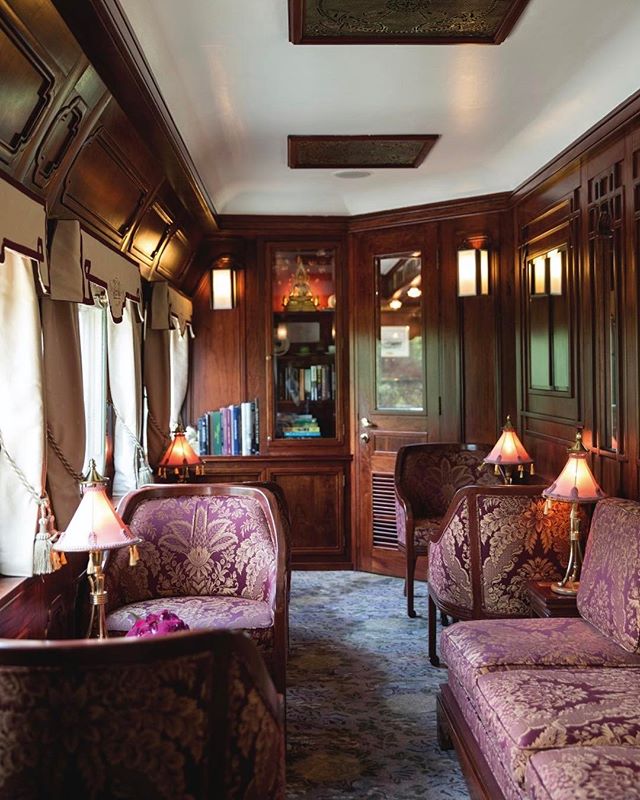



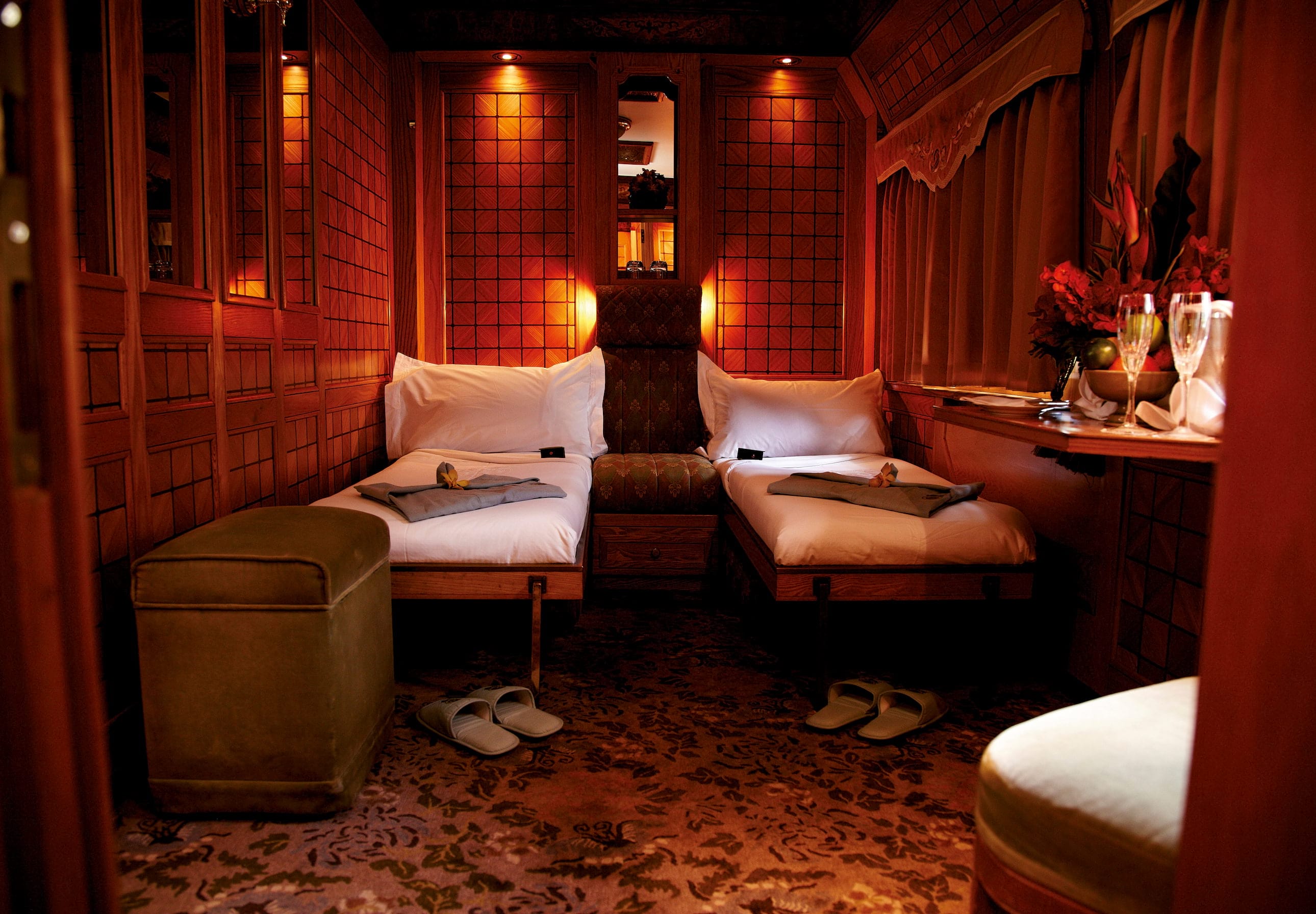

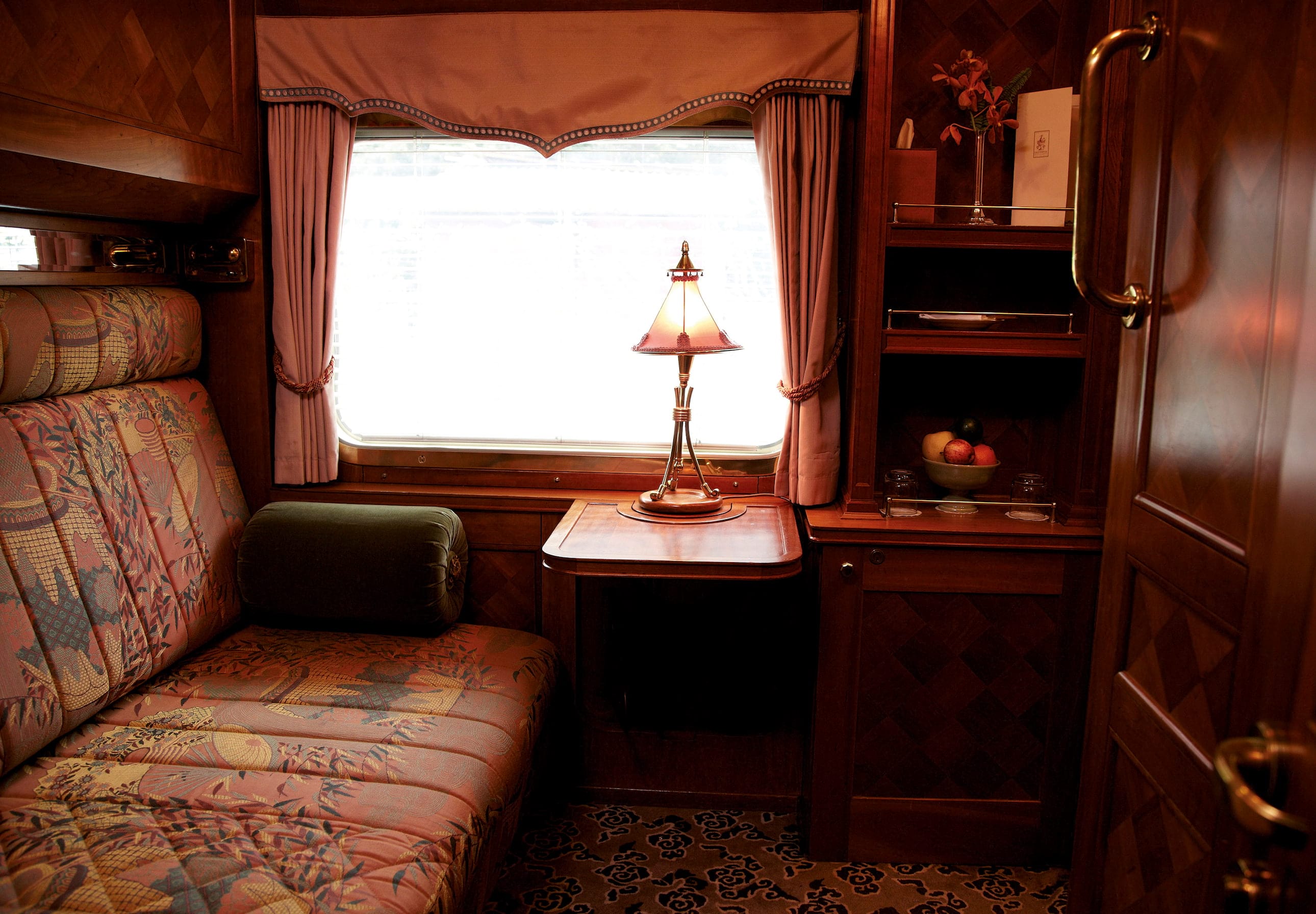
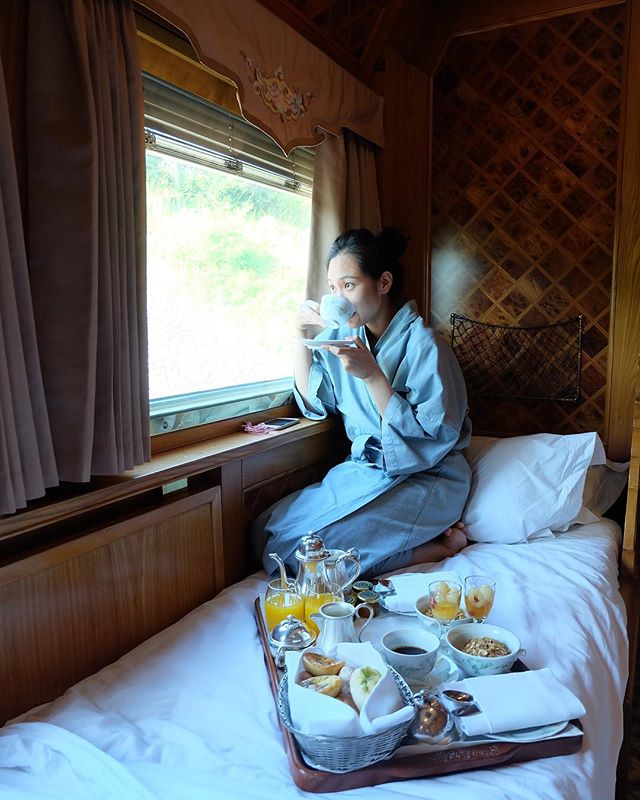
















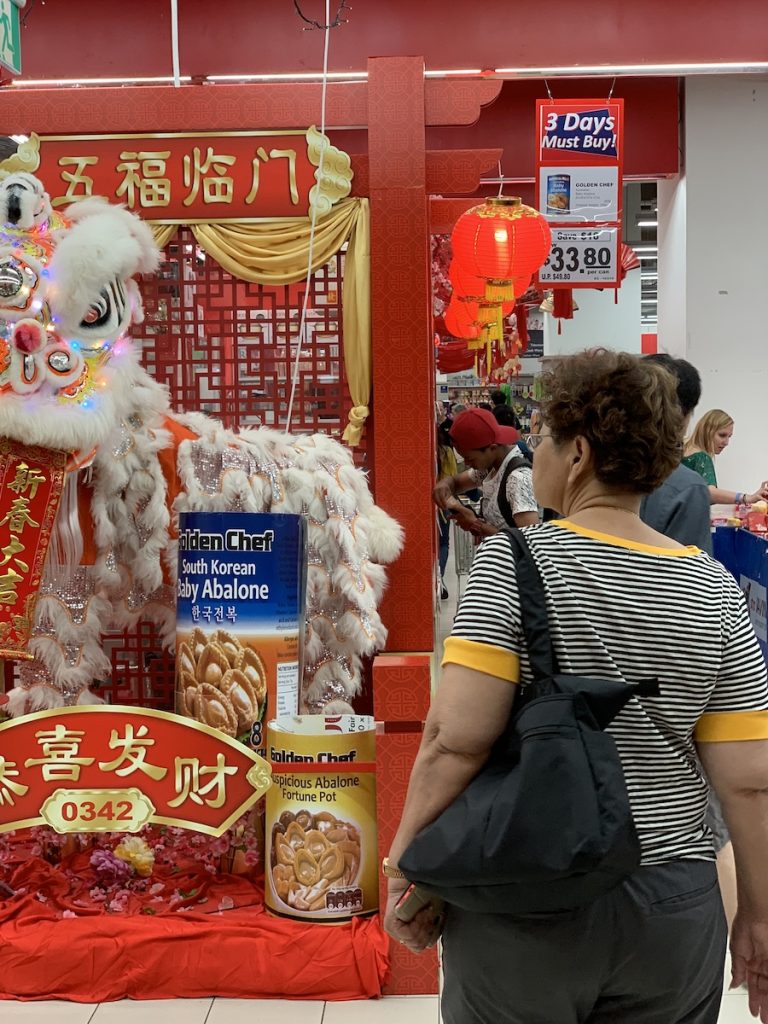
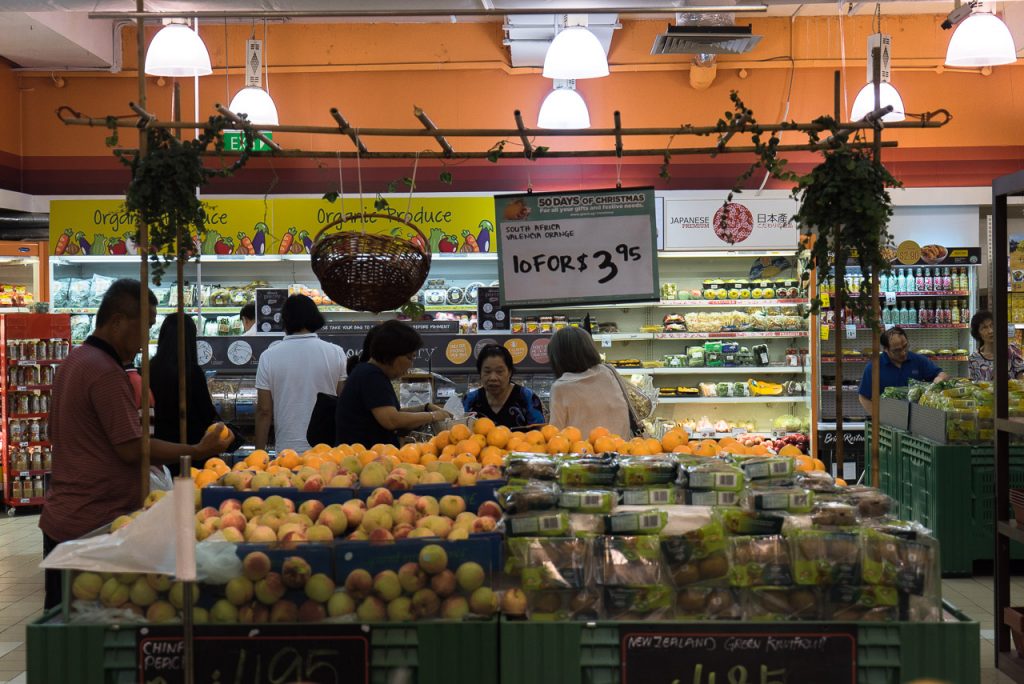
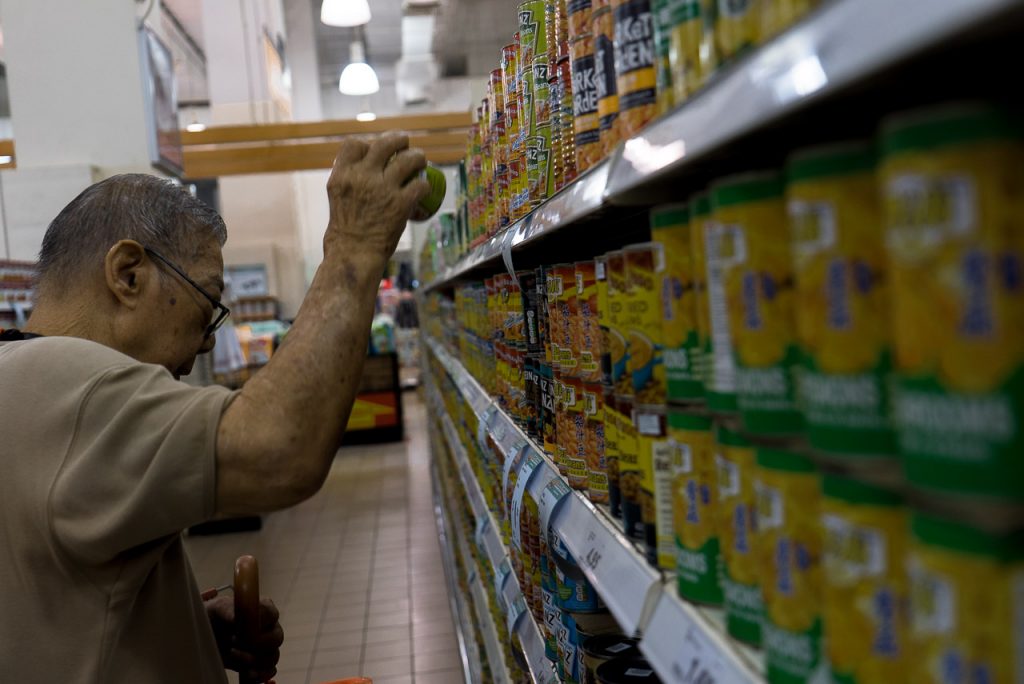



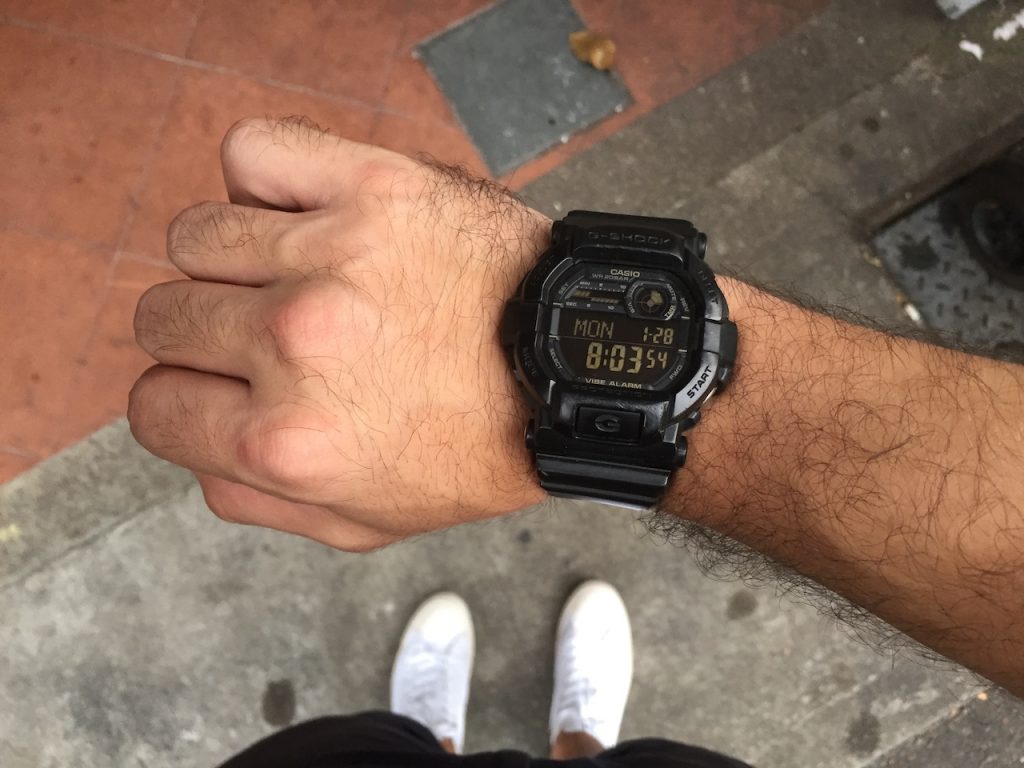

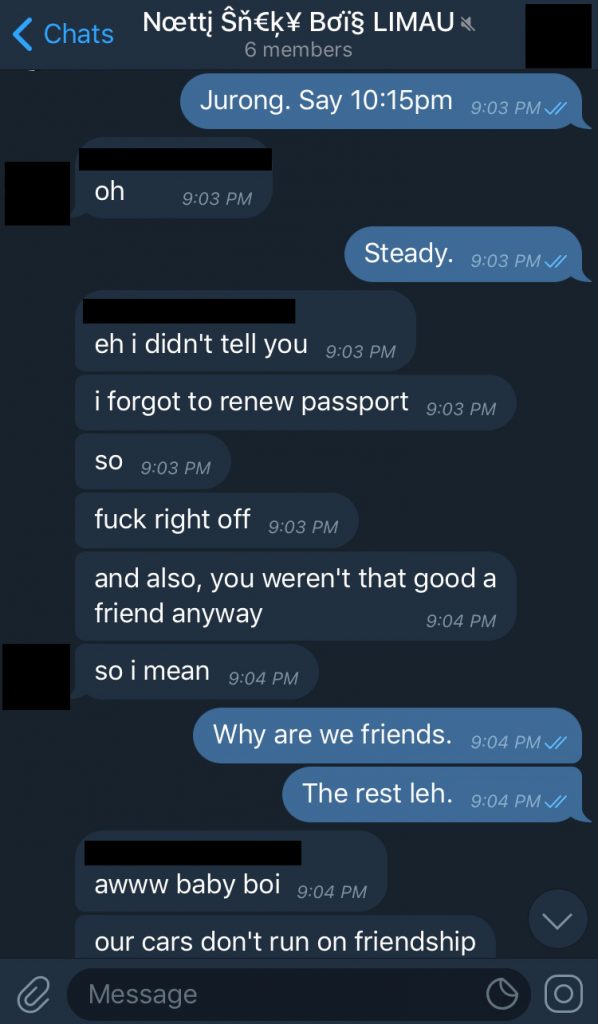
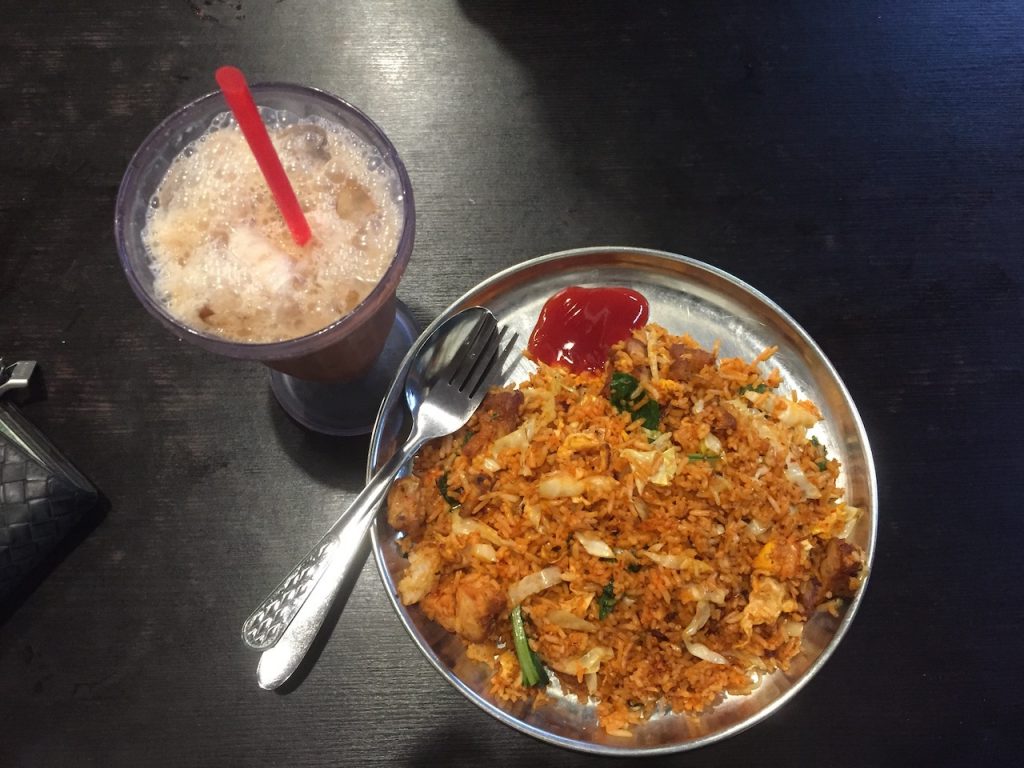
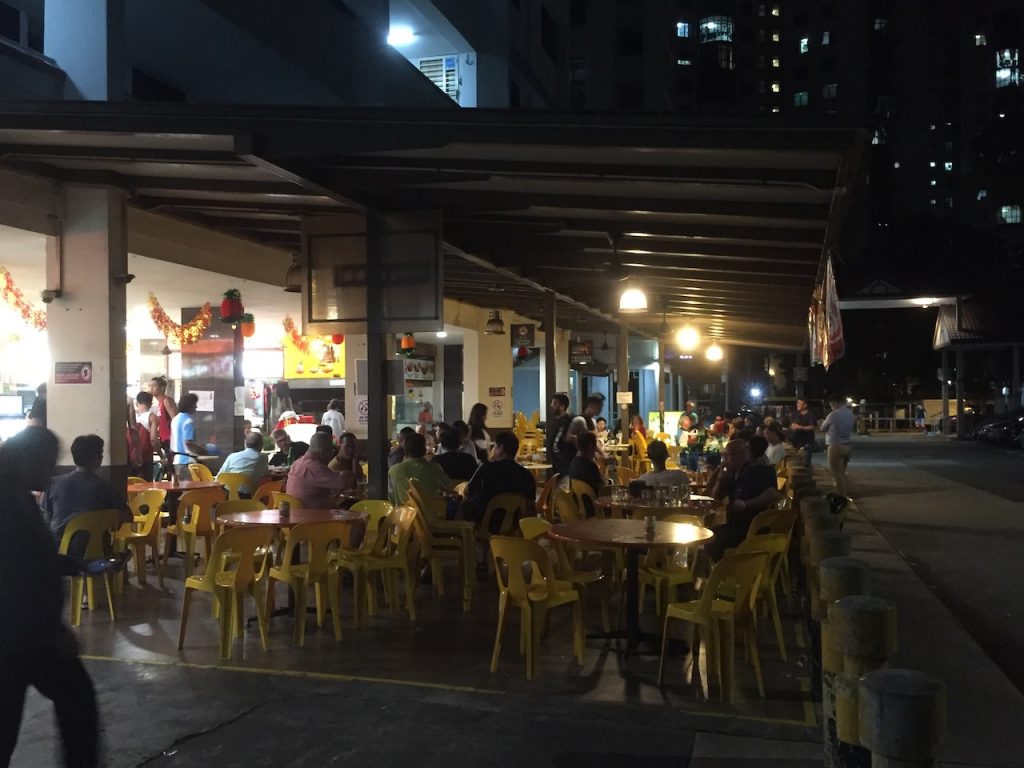

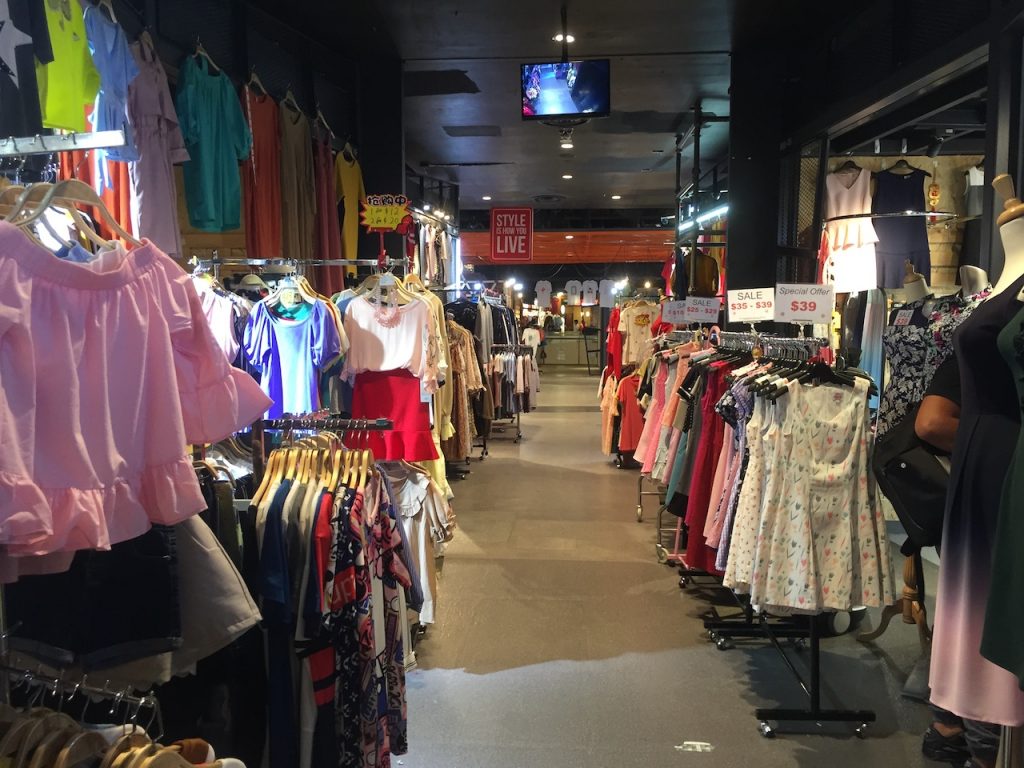

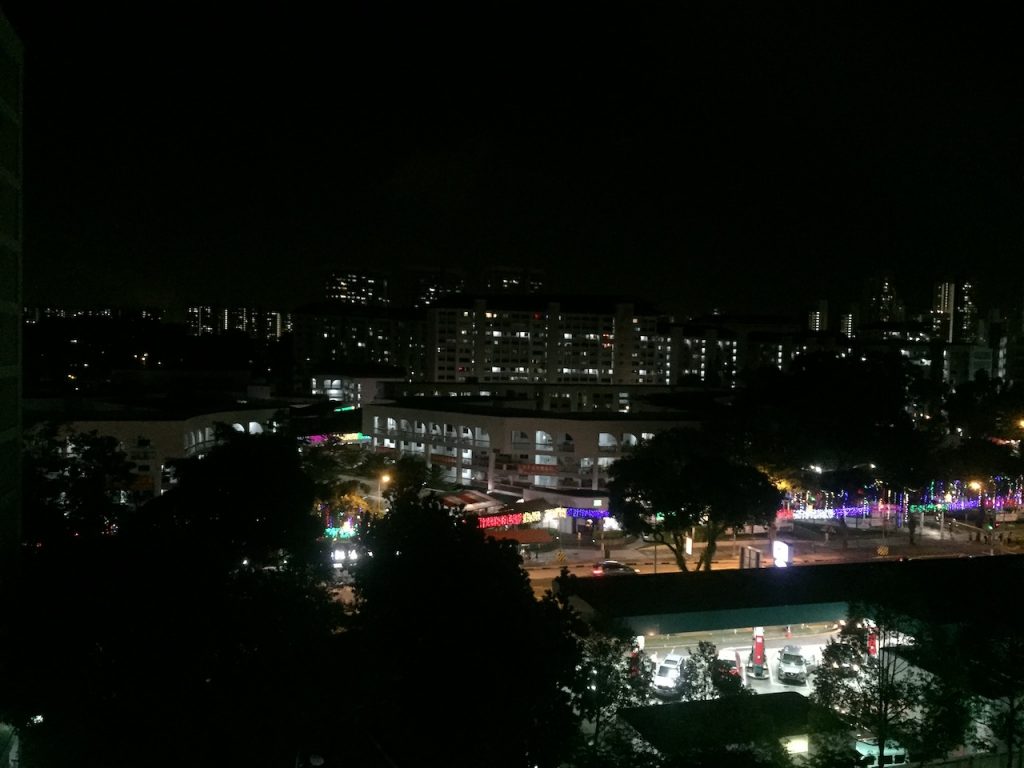


Ex-police officer with HIV admits to hiding condition from prostitutes he demanded sex from
in Chit-Chat
Posted
He rented out his one-bedroom Geylang flat to prostitutes and engaged their sexual services. However, he wilfully avoided informing the women that he carried the human immunodeficiency virus (HIV).
The 52-year-old former police officer had also threatened to create trouble for one of the prostitutes if she did not provide her services to him.
At the State Courts on Wednesday (13 February), he pleaded guilty to one count of living off the earnings of prostitutes and one count of letting his rental unit be used as a brothel. He also admitted to two counts of engaging in sexual activity without informing the other party of his HIV status.
Another four counts of the same nature will be taken into consideration for his sentencing.
The man’s name cannot be revealed due to a court-imposed gag order.
Under the Infectious Diseases Act, HIV-positive persons are obliged, prior to sexual intercourse, to inform their partners of their condition and to obtain their acknowledgement of the risks involved. A person who fails to do so can be fined up to $50,000 or jailed up to 10 years, or both.
Demanded sexual services from renters
In January 2017, the man – who then worked as a security guard – began renting the one-bedroom flat in Geylang with the intention of letting his partner live there. When his partner later disappeared, he then advertised the unit in a group chat that was populated largely by prostitutes.
On 19 June that year, a 33-year-old Chinese national told the man that she wanted to rent the unit to carry out sexual services.
When the two met days later to discuss the terms of the lease, the man asked her for sex. He used his status as a former police officer to persuade the woman, who agreed out of fear of getting into trouble with the law.
They had protected sex after the woman insisted that the man use a condom. She was not paid for her services.
The two then agreed on terms for the rental of the flat for the woman’s work.
On 22 June, the man again requested to have sex with the woman but the latter put off the appointment. The man then accused the woman of allowing her partner to stay at the flat.
He also increased the woman’s daily rental fee, telling her that the unit was “a work room, not a love nest”, according to the prosecution.
The man chased the woman out the next day, threatening to call the police on her. He refunded her the balance of $600 before the woman left.
The man allowed a second woman, a 39-year-old China national, to rent the unit for the same purpose between 24 June and 4 July.
A third woman, another 33-year-old female China national, rented the flat between 5 July and 11 July.
The man engaged in sexual activities with the third woman without telling her that he was HIV positive.
According to the prosecution, both sex workers would not have engaged in sex with the man had they been aware of his HIV status.
E-mail to MOH
On 4 April 2017, the man sent an e-mail to the Ministry of Health (MOH) stating he had had sex with a prostitute whom he suspected of having a sexually transmitted disease. He requested that the authorities investigate and repatriate the prostitute.
Four days later, he e-mailed MOH again and revealed that he was HIV positive and that the condom he wore had broken while he was having sex with the prostitute he previously mentioned.
This information was brought to the attention of the MOH’s Surveillance and Enforcement Branch for further investigations.
The man first suspected that he had contracted HIV in Thailand in 2003 but did not seek treatment or confirm diagnosis until May 2008, when he was formally diagnosed with the disease.
Accused’s viral load ‘not detectable’
Between December 2016 and July 2017, the man’s HIV viral load was “not detectable” – meaning that he had low to no chance of infecting his sexual partners. He had been consistently obtaining HIV medication during this period.
In total, the man collected some $2,500 from all three women and used the money for personal expenses.
The 39-year-old woman was arrested on 4 July after police officers conducted a raid at the unit. The man was arrested on 11 July when police officers ambushed him at his workplace.
He was brought to the unit where another woman was arrested for providing sexual services.
The man is expected to be sentenced on 5 April.
For running a brothel at his rental unit, the man can be jailed up to three years or fined up to $3,000. For living off the earnings of a prostitute, he could be jailed up to five years and fined up to $10,000.
https://sg.news.yahoo.com/ex-police-officer-hiv-admits-hiding-condition-prostitutes-demanded-sex-101441444.html